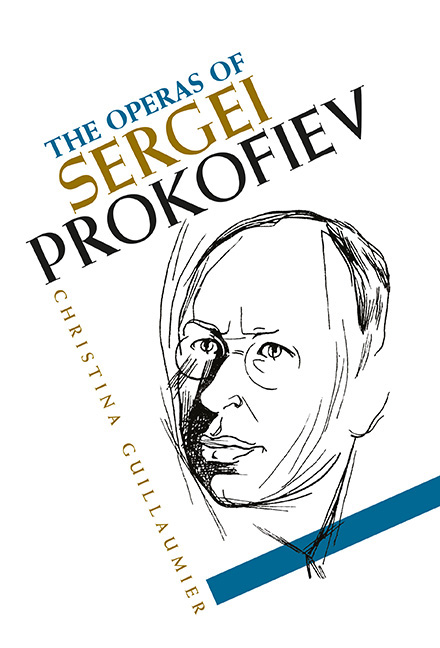Book contents
- Frontmatter
- Dedication
- Contents
- List of Illustrations
- Acknowledgements
- Note on transliteration, abbreviations and sources
- Introduction: Prokofiev and Opera
- 1 Early Operatic Experiments and Maddalena
- 2 Between Opera and Theatre: Radicalisation of Style in The Gambler
- 3 A Successful Enterprise: Love for Three Oranges
- 4 The Devil Within: Theatre and Spectacle in The Fiery Angel
- 5 Towards a Soviet Operatic Style: Semyon Kotko
- 6 Betrothal in a Monastery and the Retreat from Ideology
- 7 War and Peace: The Prokofievan Operatic Ideal?
- 8 Dramaturgical Re-evaluation in The Story of a Real Man
- Epilogue
- Synopses
- Bibliography
- Index
Introduction: Prokofiev and Opera
Published online by Cambridge University Press: 28 April 2020
- Frontmatter
- Dedication
- Contents
- List of Illustrations
- Acknowledgements
- Note on transliteration, abbreviations and sources
- Introduction: Prokofiev and Opera
- 1 Early Operatic Experiments and Maddalena
- 2 Between Opera and Theatre: Radicalisation of Style in The Gambler
- 3 A Successful Enterprise: Love for Three Oranges
- 4 The Devil Within: Theatre and Spectacle in The Fiery Angel
- 5 Towards a Soviet Operatic Style: Semyon Kotko
- 6 Betrothal in a Monastery and the Retreat from Ideology
- 7 War and Peace: The Prokofievan Operatic Ideal?
- 8 Dramaturgical Re-evaluation in The Story of a Real Man
- Epilogue
- Synopses
- Bibliography
- Index
Summary
Prokofiev is indisputably one of the twentieth century's greatest composers – this is acknowledged, but at times is not quite understood. For a composer whose music is so much part of public consciousness and contemporary auditory culture, our lack of real knowledge about large parts of his oeuvre is profoundly baffling. While there are many aspects of his biography that have made this largely inevitable, this is no excuse for such a large part of his corpus remaining unexplored. Arguably, Prokofiev's operatic oeuvre is now more popular than at any other time in its history. This study seeks not to rehabilitate it, but to reckon with it, on its own merit, delving deep into its contexts while placing the music completely at the foreground of the narrative.
The Operas of Sergei Prokofiev provides the first comprehensive and critical evaluation of all the composer's operas. The trajectory of these works is compelling and can shed real insight into Prokofiev's stylistic and aesthetic decisions, his changing compositional style, and his continual re-evaluation of his own idiom. In some cases we shall see that Prokofiev not only struggled against impossible odds but also did so optimistically, full of faith in the integrity of his own work. For this he deserves our respect and admiration possibly beyond any other composer of his time and context. This book provides insight into Prokofiev as an operatic composer, probing his processes, his compositional strategies, and his theatrical instinct. I hope to paint a portrait of a composer who was passionate about the stage and who had much to say about opera in the twentieth century. A central aim is to reveal and explore the expanding scope of Prokofiev's dramaturgical vision.
One of the key discoveries I have made during my time working on this and other associated Prokofiev projects is that, despite any appearances to the contrary, he was a confident composer – and by this I mean a composer who knew both his own mind and his own voice. Each opera tells a story – about where Prokofiev found himself contextually and where he was going artistically – and each story is different. In every opera he explores different musical, dramaturgical, and artistic avenues. Through all this, his music retains a distinctive idiom – the soundscapes of the pre-Soviet operas are different to the Soviet ones, but his musical voice remains recognisable.
- Type
- Chapter
- Information
- The Operas of Sergei Prokofiev , pp. 1 - 8Publisher: Boydell & BrewerPrint publication year: 2020



